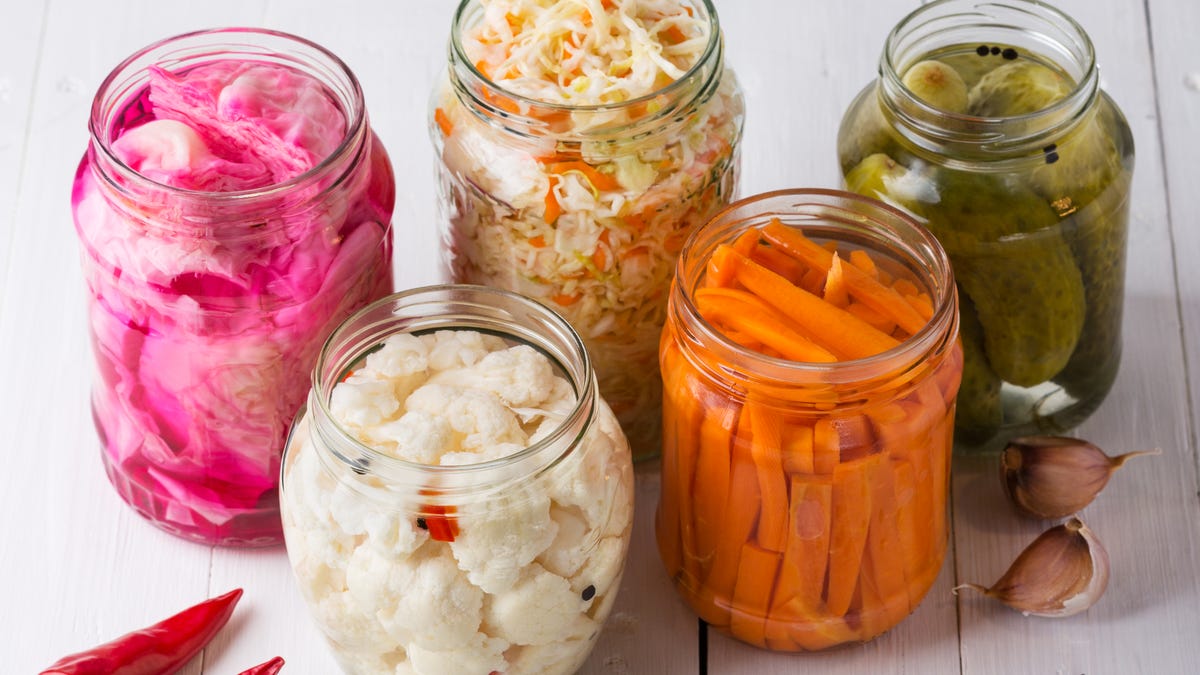Chưa có sản phẩm trong giỏ hàng.
Review sản phẩm
12 loại thực phẩm Probiotic tốt nhất để bảo vệ sức khỏe ruột
Giới thiệu 12 Best Probiotic Foods to Eat for Gut Health
Giới thiệu 12 loại thực phẩm probiotic tốt nhất để duy trì sức khỏe ruột
#QueenMobile #SảnPhẩm #ĐánhGiá #MuaNgay #ViệtNam #SứcKhỏeTiêuHóa #ThứcĂnTăngCườngDưỡngChất #Probiotic
12 Thực phẩm probiotic tốt nhất để duy trì sức khỏe tiêu hóa
Sức khỏe tiêu hóa là một phần quan trọng trong cuộc sống hàng ngày của chúng ta. Để giúp đảm bảo cân bằng vi khuẩn trong ruột, việc tiêu thụ các thực phẩm probiotic là cực kỳ quan trọng. Không chỉ giúp duy trì sức khỏe tiêu hóa, mà chúng còn cung cấp nhiều lợi ích sức khỏe khác nữa.
Queen Mobile tự hào giới thiệu 12 loại thực phẩm probiotic tốt nhất để bạn có thể thưởng thức và tận hưởng công dụng của chúng:
1. Sữa chua: Sản phẩm này chứa nhiều vi khuẩn tốt cho ruột và giúp tăng cường hệ thống miễn dịch.
2. Kefir: Giống như sữa chua, kefir cũng chứa nhiều vi khuẩn và có thể cải thiện quá trình tiêu hóa.
3. Chanh dây: Chứa nhiều enzyme kháng vi khuẩn và chất xơ, chanh dây giúp cân bằng hệ vi sinh trong ruột.
4. Miso: Một món ăn truyền thống của Nhật Bản, miso là một nguồn cung cấp probiotic cung cấp nhiều lợi ích cho sức khỏe.
5. Tempeh: Một loại thức ăn từ đậu nành, tempeh có nhiều vi khuẩn lactic acid, giúp duy trì hệ vi sinh trong ruột.
6. Kimchi: Một món ăn truyền thống Hàn Quốc, kimchi chứa nhiều vi khuẩn lactic acid và cải thiện tiêu hóa.
7. Sauerkraut: Một loại chua từ cải bắp lên men, sauerkraut chứa nhiều vi khuẩn probiotic và cung cấp nhiều chất chống vi khuẩn.
8. Tương miso: Tương miso có chứa nhiều vi khuẩn acid lactic và probiotic, giúp duy trì sức khỏe tiêu hóa.
9. Natto: Một món ăn truyền thống của Nhật Bản, natto chứa nhiều vi khuẩn probiotic và có thể giảm nguy cơ các vấn đề tiêu hóa.
10. Kombucha: Được làm từ trà lên men, kombucha là một nguồn cung cấp vi khuẩn probiotic có lợi cho sức khỏe.
11. Khoai tây: Khoai tây cung cấp chất xơ cùng với enzyme như probiotic, góp phần cải thiện sức khỏe tiêu hóa.
12. Cà chua: Dưới dạng chín hoặc chưa chín, cà chua cung cấp vi khuẩn tốt cho sức khỏe tiêu hóa.
Hãy đến Queen Mobile ngay hôm nay để tìm hiểu về các sản phẩm probiotic tuyệt vời và tận hưởng lợi ích tuyệt vời của chúng cho sức khỏe tiêu hóa của bạn. #QueenMobile #GWSQCủaVợ #SứcKhỏeTiêuHóa
Mua ngay sản phẩm tại Việt Nam:QUEEN MOBILE chuyên cung cấp điện thoại Iphone, máy tính bảng Ipad, đồng hồ Smartwatch và các phụ kiện APPLE và các giải pháp điện tử và nhà thông minh. Queen Mobile rất hân hạnh được phục vụ quý khách….
_____________________________________________________
Mua #Điện_thoại #iphone #ipad #macbook #samsung #xiaomi #poco #oppo #snapdragon giá tốt, hãy ghé [𝑸𝑼𝑬𝑬𝑵 𝑴𝑶𝑩𝑰𝑳𝑬] ✿ 149 Hòa Bình, phường Hiệp Tân, quận Tân Phú, TP HCM
✿ 402B, Hai Bà Trưng, P Tân Định, Q 1, HCM
✿ 287 đường 3/2 P 10, Q 10, HCM
Hotline (miễn phí) 19003190
Thu cũ đổi mới
Rẻ hơn hoàn tiền
Góp 0%
Thời gian làm việc: 9h – 21h.
KẾT LUẬN
Mục tiêu của bài viết là tạo ra một danh sách 12 loại thực phẩm chứa vi khuẩn có lợi cho sức khỏe ruột. Bài viết không chỉ cung cấp thông tin về các loại thực phẩm này mà còn lý giải lợi ích của vi khuẩn probiotic cho sức khỏe ruột.
Bài viết bắt đầu bằng việc giải thích vai trò quan trọng của vi khuẩn probiotic trong việc duy trì sức khỏe ruột và tăng cường hệ miễn dịch. Sau đó, danh sách 12 loại thực phẩm bao gồm:
1. Sữa chua: là một nguồn giàu vi khuẩn probiotic như Lactobacillus và Bifidobacterium.
2. Kefir: loại nước hoa quả lên men có chứa nhiều vi khuẩn probiotic và các vi khuẩn khác.
3. Chúp mỡ nước: loại trái cây có chứa nhiều chất xơ và vi khuẩn probiotic.
4. Miso: loại mì chính được làm từ Đậu nành Fermented chứa vi khuẩn Lactobacillus.
5. Tempeh: một loại đậu chế biến lên men có chứa vi khuẩn probiotic.
6. Natto: một loại đậu nành lên men phổ biến ở Nhật Bản, có chứa vi khuẩn probiotic và men lên men.
7. Dưa muối: là loại kim chi hấp dẫn có chứa vi khuẩn probiotic và các chất chống vi khuẩn.
8. Dưa chua: Được làm từ cải thảo và chứa các loại vi khuẩn probiotic.
9. Mận sấy: loại quả sấy khô là một nguồn giàu vi khuẩn probiotic.
10. Bánh mì đã lên men: loại bánh mỳ này có chứa nhiều vi khuẩn chiến lược.
11. Hành, cải, và tỏi: các loại rau củ này chứa nhiều chất xơ và vi khuẩn probiotic.
12. Hạt điều: Một loại hạt có chứa các vi khuẩn probiotic và chất chống vi khuẩn.
Bài viết kết thúc bằng cách khuyến khích người đọc bao gồm các loại thực phẩm này vào chế độ ăn hàng ngày để tăng cường sức khỏe ruột và phòng ngừa các vấn đề liên quan đến ruột.
You’ve probably heard of probiotics and how essential they are for a healthy gut and overall well-being. These living microorganisms can help promote the growth of good bacteria in your gut, and you should make sure you’re getting some.
Probiotics have been associated with reducing depression, promoting heart health, boosting the immune system and improving skin. One theory behind why probiotic foods improve our overall health is that good gut bacteria can help promote healthy metabolism, which can prevent a wide array of disorders, such as obesity and diabetes.
Best probiotic foods for a healthy gut
If you’re interested in getting more probiotics in your diet for gut health, below are 12 excellent probiotic foods, without Googling “foods for healthy gut.” In addition to these foods, you might also try probiotic supplements. Look for labeling that says “contains live cultures” or “contains active cultures” in these common probiotic foods.
Yogurt
A standby for getting more probiotics is to eat yogurt with live and active cultures. Some yogurts are even advertised to help aid in digestion or promote their probiotic content. According to Harvard Medical School, yogurt usually has L. acidophilus bacteria.
Yogurt is a good option because it’s easy to find, you can buy any flavor to match your preference and you can eat it right out of the container.
Kimchi
Kimchi is a traditional Korean favorite made by fermenting vegetables with probiotic lactic acid bacteria. Kimchi can give you that probiotic punch, along with healthy foods like vegetables (most commonly napa cabbage, carrots, scallions and radish), garlic, red pepper powder, ginger and other spices. It makes a wonderful side dish and is traditionally served with steamed rice.
Kimchi is associated in research with anti-cancer, anti-obesity, colorectal health, cholesterol reduction, anti-aging, brain health, immune health and skin health properties.
Pickles
You might be surprised to learn that pickles can contain probiotics. You have to make sure to buy fermented pickles, though — they’re usually found in the refrigerated section of the health food aisle. Some brands even advertise probiotic content. They trend under the term “healthy pickles,” but be sure to read the labels to ensure they contain probiotics. You can even make them at home. Some people even drink or make use of the juice the pickles are fermented in. Note that jarred pickles tend to be high in sodium.
Sourdough
Sourdough starter has lactic acid bacteria. The starter is the environment where yeast and good bacteria grow by consuming water and flour. Natural prebiotics and probiotics are listed in research as one of the benefits of sourdough bread. It’s also linked to better blood glucose control, reduced cholesterol, a lower risk of diabetes, reduced cardiovascular disease risk and improved weight control. Also, it makes a pretty good sandwich.
Kefir
Kefir is a fermented milk made using kefir grain. It starts as a normal cow’s or goat’s milk, and then a grain-like yeast and lactic acid bacterial colony called kefir is added to the milk. The mixture is left to ferment for around a day, and then the milk is filtered from the grains, leading to the kefir drink. The resulting drink is a powerful probiotic that packs more probiotics than yogurt.
Kombucha
Kombucha is a health drink that’s made its way more into the mainstream in recent years. You can find it in the drink aisle at major grocery stores. This drink is actually a fermented tea, so you’re getting the health benefits of tea with the probiotic boost of a fermented beverage. It’s made by adding strains of bacteria, yeast and sugar to either black or green tea, which leads to the drink’s probiotic-happy atmosphere. It ferments for about a week or more until it grows a mushroom-type texture on top. The mushroom gets filtered out to make new kombucha.
Sauerkraut
This German comfort food is a fermented cabbage made by lacto-fermenting the vegetable in its brine and some salt. As part of the traditional fermentation process, probiotics are in the end product.
But this is another product where you have to buy probiotic sauerkraut or make your own. Many brands use vinegar and sugar or are pasteurized, which reduces the growth of bacteria and kills probiotics. Common canned sauerkraut is usually made with vinegar, or it’s pasteurized (or both).
Miso soup
This Japanese comfort food is served as a side to many meals. Miso is a paste typically made from fermented soybeans and works as a condiment to make sauces, spreads and soup stock. Miso soup uses this paste for the stock. Because miso is another fermented food type, it packs the probiotic punch. Miso soup works great with larger meals or makes a nice, light lunch on its own.
Apple cider vinegar
Apple cider vinegar is twice-fermented apple juice. Apple cider vinegar has been making its rounds for years as a popular health supplement. It has natural probiotics from the fermentation process. Cleveland Clinic states that most studies on apple cider vinegar’s benefits are small, but many people also use it for anything from calming acid reflux to weight loss. It has a strong flavor, so if you don’t like taking it directly, add it to salad dressing, marinades or pickling.
Some cheese
Certain types of cheeses have probiotics. According to Harvard Health, aged cheeses and not heated afterward tend to have probiotics. Examples include Swiss, Gouda, cheddar, Edam, Gruyere, cottage cheese and provolone. So the good news is that many popular cheese types have probiotics, including a healthy bowl of cottage cheese with some fruit added.
Pickled vegetables
Along the same lines as the kimchi and pickles above, you can also look into any healthy pickled vegetables that list as having probiotics. One idea is to look into lacto-fermented escabeche, a pickled dish from Mexico that can contain all vegetables. Or you can make a fermented Giardiniera, an Italian pickle relish. Using fermented pickled vegetables is also a great way to shop locally and preserve vegetables for use out of season.
Buttermilk
Buttermilk may seem like a drink out of Little House on the Prairie, but traditional buttermilk can be an excellent source of probiotics. Buttermilk covers different types of fermented dairy beverages, but traditional buttermilk is the liquid skimmed out of the butter-making process. The trick is to avoid cultured buttermilk, which is the most common type in supermarkets and usually does not have probiotics.


